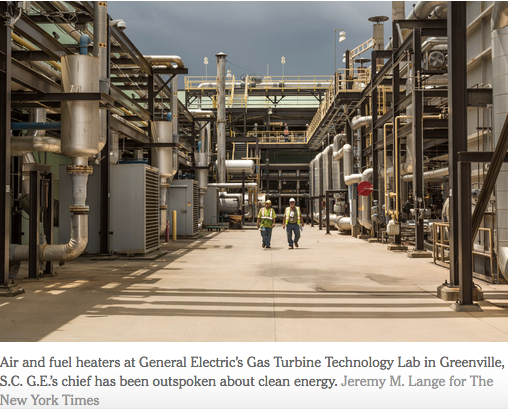Jeffrey R. Immelt, General Electric’s chief executive, says climate change is real, a position at odds with the Trump administration.
As a member of a White House manufacturing advisory council, he also has President Trump’s ear. And environmentalists are counting on Mr. Immelt, and other executives close to the president, to use that access to argue for policies to combat global warming when the White House is rolling them back.
The companies’ business objectives and credibility are also at stake. Elon Musk of Tesla, another member of Mr. Trump’s council, is building an energy business intended to avoid the need for fossil fuels in favor of solar panels, batteries and electric vehicles. Doug McMillon of Walmart, the retail giant, has committed his company to a sharp reduction in the planet-warming gases it emits, as has Indra Nooyi of PepsiCo, the food and beverage company.
BlackRock, the world’s largest publicly traded money manager — whose chief executive, Laurence D. Fink, sits on Mr. Trump’s council — has pledged to press companies to address the effects of climate change on their businesses. And Intel, Johnson & Johnson and Campbell Soup were among hundreds of businesses that urged the United States after Mr. Trump’s election to stick with last year’s Paris climate agreement and its commitment to reduce carbon emissions.
“Mr. Trump says the business perspective is especially important, so hearing the business voice is critical,” said Kevin Moss, of the World Resources Institute, an environmental research group in Washington.
“The companies are demonstrating that it’s in their business interest to take action on climate,” he said. “The more they’re willing to say that and take action, the stronger the message comes across.”
Those hopes have become increasingly urgent as Mr. Trump — against the warnings of scientists, environmentalists and even the government’s own research — has moved to nullify the Obama administration’s efforts on climate change.




